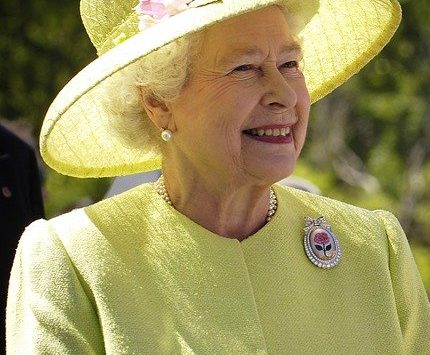Issue Briefs

The Anglosphere governance model is the Gold Standard
November 11, 2019
By Martin Hutchinson
Assuming Britain finally manages to edge its way out of the EU, it will look for other affiliations. The obvious choice is joining the core Anglosphere of the United States, Canada, Australia and New Zealand. At first sight, this may look like a model driven by mere nostalgia. Not so: the governance model of the Anglosphere is the best in the world, in terms of assuring the happiness and prosperity of its citizens. Thus, a loosely associated Anglosphere can serve as a global model.
Rising Anglosphere
The concept of global association of the Anglosphere countries was first postulated by James C. Bennett in his 2004 book “The Anglosphere Challenge.” At that time, it appeared quixotic. Britain was locked into an ever closer European Union with countries clearly outside the Anglosphere; the United States was becoming increasingly ethnically diverse and moving away from its founding model; while Canada, Australia and New Zealand were surely too small and insignificant to be more than bit-players in the future world. Overall, the world was becoming increasingly globalist, economically and politically, so nation states seemed anachronisms as modern communications bound the world together in an ever-improving, increasingly democratic whole.
But now it is different. For both positive and negative reasons, the Anglosphere has become more real, and should be taken seriously. The seemingly inevitable process of democratic globalization has gone into reverse. The dream of global government came closer and was revealed to be an authoritarian nightmare. The EU has shown itself both economically feeble and increasingly reminiscent of the centrally planned economies of pre-1991 Eastern Europe. China, far from becoming more democratic as it became richer, has become more authoritarian and an increasing threat to the interests of its neighbors and the world.
More real
On the other hand, the Anglosphere has become more real, not less. Canada and Australia have grown rapidly in population, so they are no longer mere appendages of the larger Anglosphere members, but weighty participants in their own right. The United States, having flirted with Wilsonian attempts to dominate the world and globalist attempts to immerse itself in supranational governance, has reasserted its independence and its unique national personality. Britain, much to everybody’s surprise, has voted to leave the European Union and, if it indeed emerges unscathed from this “divorce”, it can reclaim its place as a substantial mid-range world power with a unique policy approach. In a hostile and dangerous world, the Anglosphere countries will increasingly be drawn to work together, as they already do in intelligence collection through the Five Eyes system.
The Anglosphere is the “Gold Standard”
For several reasons, the Anglosphere countries represent a “Gold Standard” in global governance. Most important, all the Anglosphere countries except New Zealand operate “first past the post” (FPTP) electoral systems, in which the winner in each constituency needs only a plurality of votes. The United States also operates such a system on a state-by-state basis for its Presidential elections. New Zealand operated its electoral system on this basis until 1996, when it switched to a mixture of FPTP and proportional representation.
The effect of FPTP is to suppress the representation of minor parties, preventing the legislature from becoming fissiparous. Accordingly, nearly all governments in an FPTP system are formed through decisions of the electorate, and not by horse-trading between political groups after the election has ended.
Proportional representation creates fractured politics
Contrast this with proportional representation systems as used in most continental European countries. In these countries there are several major parties, and governments are often formed by negotiation between the parties to put together a coalition with a parliamentary majority after the election has ended. This has two effects. First, shifts in public opinion have almost no impact on the composition of governments. Indeed, a group can have a very good election, increasing its representation substantially, and still be left out of government if other parties combine against it. Second, new parties with views outside the mainstream are often ostracized by traditional parties, with “grand coalitions” being formed to exclude them even when they gain a substantial percentage of the vote.
Thus, voters with policy priorities not represented among centrist governing parties are essentially disfranchised, leading to their further alienation. Apart from being undemocratic, this is highly dangerous. This was the principal mechanism by which the Nazi party took power in Germany in 1930-33. In FPTP countries, one or other of the main parties has every incentive to pick up an issue on which a substantial part of the electorate feels strongly and act upon it, as evidenced by the election of President Trump in 2016 on the issues of opposing heavy low-skill immigration and opposing globalization.
As countries grow larger (or amalgamate into larger units) the need for FPTP becomes greater. New Zealand, with a population of only 4.8 million and only 120 members of its House of Representatives, can rest assured that its elected representatives will be sufficiently close to the electorate and to each other that political changes can be accommodated, even with a partly proportional system (the populist nationalist New Zealand First party holds the balance of power and has in the past allied with both major parties).
The ills of proportional representation
Conversely the European Union, with a population of 512 million in 28 countries, 751 MEPs and no effective union-wide political parties, is an extreme case of a proportional representation system in which the same centrist parties are always in power by coalition with each other, voters’ opinion is completely ignored, and MEPs elected by populist voters are determinedly shunned by the groups that run the parliament. It is thus a wholly undemocratic and very dangerous government system, leading in practice to rule by a self-selecting cadre of unelected anti-democratic bureaucrats. George Soros’ Open Society in Eastern Europe has attempted to reproduce the governance of the EU rather than of the Anglosphere; it is thus the enemy of true openness and democracy.
Anglosphere political systems are more representative
It is not surprising that Anglosphere political systems are more representative, less dangerous and more economically successful. They all descend from the systems put in place by the immensely successful generation of statesmen that contained William Pitt the younger, the 2nd Earl of Liverpool, and the U.S. Founding Fathers. Those statesmen were repelled by the violence and irrationality of the French Revolution, so they established systems in their own countries that allowed the maximum freedom while discouraging violent upheaval. Through their intelligent, benign governance, they also gave full rein to the emerging forces of industrialization that were in the long run to enrich their people beyond all imagination.
Flexibility
Even before 1789, the British and U.S. systems had shown themselves more flexible than that of France, for example. In the late 17th century, both Britain and France were believers in Thomas Mun’s theory that successful statesmen try to accumulate “treasure” by exporting more than they import. However, the French application of this principle, by Jean-Baptiste Colbert, involved import substitution, making the French economy uncompetitive, while the British version involved colonization and developing addictive export crops of sugar and tobacco, which could be taxed to produce revenue. Then in the years to 1720 France followed the Keynesian madman John Law into dumping its people’s savings into notes of a bankrupt bank, while the British restricted themselves to stock market speculation, a less damaging activity when it went wrong.
Outside Europe, few examples of good governance
Outside Europe, there have been a few examples of fine governance that did not follow European models. Song dynasty China, for example, was undoubtedly the world’s best run society of the 11th and 12th Centuries, with a mandarinate selected on merit through open examinations. While that society did not lend itself to entrepreneurship or technological innovation, it was by far the most satisfactory home for ordinary people before the Renaissance, including Greece and Rome. Alas, it succumbed to Mongol conquest, and subsequent iterations of Chinese governance have been greatly inferior, more tyrannical and even less capable of dealing with innovation. China’s current regime, while economically fairly successful (though nowhere near as successful as it claims) is hopelessly repressive and a major threat both to its people’s liberty and that of its neighbors.
Avoiding socialism
Even Anglosphere countries have seen their political systems degraded since their apogee in 1800-25. The German invention of socialism was avoided in the United States (until now); but badly affected the other Anglosphere countries, making their economies far more sluggish than they needed to be, and working against the small government with light, transparent regulation that epitomizes the Anglosphere tradition.
In the United States, Democrats, Whigs, Republicans and Progressives replaced the wholly admirable Federalists. In Britain, the Whigs forced through their gerrymandering 1832 Reform Act after which the Tories, heirs to the finest traditions of government, engaged in pre-emptive surrender to the left for the next 150 years, until Margaret Thatcher brought at least a temporary halt to the decline.
Even watered down Anglosphere principles are still superior
Thus, the traditions of Anglosphere government are now not so clearly superior as they might be. Nevertheless, non-Anglosphere countries such as India that have adopted an Anglosphere political structure have seen some success in recent years as they have developed two viable political parties that can alternate in power and around which political forces can gather. It is however still unclear whether this healthy political structure can overcome India’s “permit raj” bureaucracy that is EU-like in its density and opacity. Counterexamples like Argentina, with one dominant party of the left and perpetual economic decline, will also encourage their neighbors to move in an Anglospheric direction.
Britain can now rejoin the Anglosphere
Now Brexit offers Britain an opportunity to work with other countries of similar political traditions. Federation is not an option — Britain has seen enough of the disadvantages of that in the last 46 years and will not want to repeat them. But a loose trade and political backscratching agreement, which allows each of the parties to gain benefits from the capabilities of the others, is an attractive way forward. The eventual structure will not be an Empire, but if carefully designed it can gain for all parties concerned many of the advantages and few of the disadvantages of that much-maligned entity.
 |
Martin Hutchinson is a GPI Fellow. He was a merchant banker with more than 25 years’ experience before moving into financial journalism. Since October 2000 he has been writing “The Bear’s Lair,” a weekly financial and economic column. He earned his undergraduate degree in mathematics from Trinity College, Cambridge, and an MBA from Harvard Business School. |
This article was originally published on the True Blue Will Never Stain http://www.tbwns.com